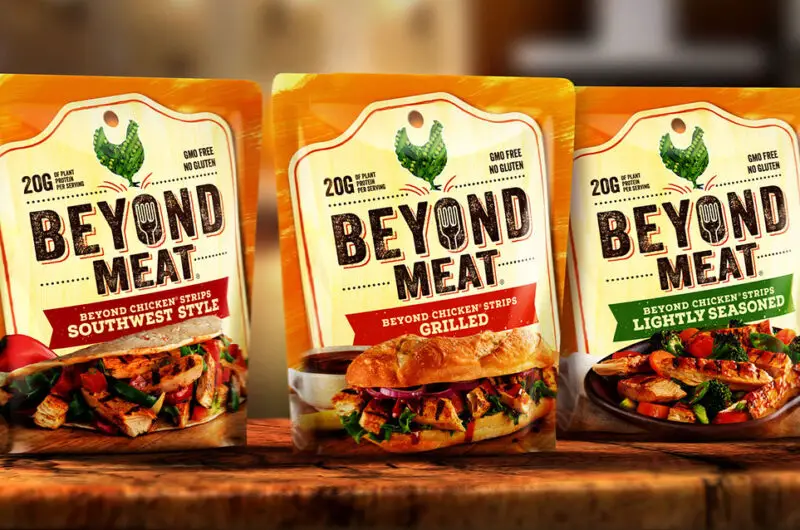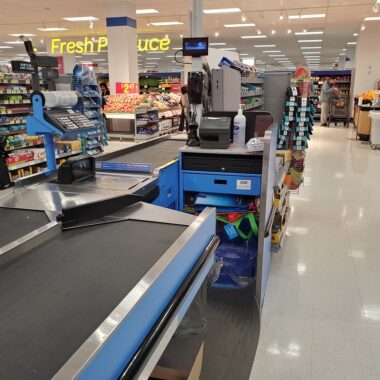In recent years, the food industry has witnessed a seismic shift toward plant-based diets, driven by growing consumer awareness of health, sustainability, and ethical concerns. This transformation has propelled plant-based food companies to the forefront of the market, with innovative products that rival traditional meat, dairy, and egg-based offerings. From startups to established giants, these companies are redefining how we eat, leveraging cutting-edge technology, and capitalizing on a global movement toward more sustainable food systems. This article delves into the rise of plant-based food companies, the market leaders shaping the industry, and the forces propelling their success as of 2025.
The Rise of Plant-Based Eating
The shift toward plant-based eating is no fleeting trend. According to industry reports, the global plant-based food market was valued at over $29 billion in 2023 and is projected to surpass $77 billion by 2030, growing at a compound annual rate of nearly 12%. Consumers are increasingly motivated by a trifecta of factors: health benefits, environmental sustainability, and animal welfare. Studies have linked plant-based diets to lower risks of chronic diseases such as heart disease, diabetes, and certain cancers. Meanwhile, the environmental toll of animal agriculture—accounting for roughly 14.5% of global greenhouse gas emissions—has spurred demand for alternatives that reduce carbon footprints. Ethical considerations, amplified by documentaries like Cowspiracy and The Game Changers, have further fueled the movement.
This convergence of drivers has created fertile ground for plant-based food companies to thrive. What began with niche products like tofu and soy milk has evolved into a sophisticated ecosystem of meat analogues, dairy-free cheeses, and egg substitutes that mimic the taste, texture, and nutritional profile of their animal-based counterparts. Leading the charge are companies that have mastered the art of innovation, scalability, and consumer appeal.
Beyond Meat: The Pioneer of Plant-Based Meat
Few companies have had as profound an impact on the plant-based revolution as Beyond Meat. Founded in 2009 by Ethan Brown, Beyond Meat set out to create plant-based meat that could satisfy even the most ardent carnivores. Its flagship product, the Beyond Burger, debuted in 2016 and quickly became a household name, available in supermarkets and fast-food chains alike. Made from pea protein, coconut oil, and beet juice (for that signature “bleeding” effect), the Beyond Burger replicates the sensory experience of beef without the environmental or ethical baggage.
Beyond Meat’s success lies in its strategic partnerships and relentless innovation. By 2025, the company has expanded its product line to include plant-based sausages, chicken tenders, and even steak tips, all crafted with proprietary technology that aligns plant proteins into fibrous, meat-like textures. Collaborations with giants like McDonald’s (the McPlant burger) and Yum! Brands (KFC’s Beyond Fried Chicken) have cemented its mainstream appeal. In 2024, Beyond Meat reported revenues exceeding $500 million, a testament to its ability to scale while maintaining a focus on sustainability—its products use 99% less water and 93% less land than beef production.
The company’s public listing on NASDAQ in 2019 was a watershed moment, signaling that plant-based foods were no longer a niche market. Despite challenges like rising competition and fluctuating stock prices, Beyond Meat remains a leader, driven by its mission to “improve human health, positively impact climate change, and address global resource constraints.”
Impossible Foods: The Science-Driven Disruptor
If Beyond Meat is the pioneer, Impossible Foods is the scientist of the plant-based world. Launched in 2011 by Stanford biochemist Patrick Brown, Impossible Foods took a molecular approach to recreating meat. Its breakthrough came with the discovery of heme—a molecule found in animal muscle that gives meat its flavor and aroma. By fermenting genetically engineered yeast to produce plant-based heme (called soy leghemoglobin), Impossible Foods created a burger that sizzles, bleeds, and tastes uncannily like beef.
The Impossible Burger, first served in 2016 at chef David Chang’s Momofuku Nishi, has since become a global phenomenon. By 2025, Impossible Foods has expanded into pork, chicken, and sausage alternatives, all powered by its heme technology. The company’s partnership with Burger King (the Impossible Whopper) brought plant-based eating to the masses, while its presence in grocery stores has made it a staple for home cooks. In 2024, Impossible Foods raised $500 million in a funding round, valuing the company at over $7 billion and signaling strong investor confidence in its growth trajectory.
What sets Impossible Foods apart is its commitment to science and sustainability. The company claims its products generate 89% fewer greenhouse gas emissions than conventional beef. Its focus on flavor has also won over skeptics, with taste tests consistently ranking the Impossible Burger higher than competitors in blind comparisons. As of March 2025, Impossible Foods is rumored to be preparing for an IPO, a move that could further solidify its dominance in the plant-based meat sector.
Oatly: Revolutionizing Plant-Based Dairy
While plant-based meat grabs headlines, the dairy alternative market is equally transformative, and Oatly is leading the charge. Founded in Sweden in the 1990s, Oatly turned oats—a humble, sustainable crop—into a global sensation.
Its oat milk, launched in the U.S. in 2016, became a cultural phenomenon, embraced by baristas, home cooks, and eco-conscious consumers alike. By 2025, Oatly has expanded into yogurt, ice cream, and creamers, all made from oats processed with proprietary enzymes to enhance creaminess and nutrition.
Oatly’s meteoric rise is fueled by its quirky branding and environmental ethos. With slogans like “It’s like milk, but made for humans” and a commitment to carbon-neutral production, Oatly has cultivated a loyal following. The company went public in 2021, raising $1.4 billion, and by 2024, its revenues approached $900 million. Its products are now available in over 60 countries, with Asia emerging as a key growth market thanks to rising lactose intolerance awareness.
Oatly’s success underscores the broader boom in plant-based dairy, projected to reach $51 billion by 2028.
Competitors like Almond Breeze and Silk dominate almond and soy milk, but Oatly’s focus on sustainability—oats require less water and land than almonds or dairy cows—gives it an edge. In 2025, Oatly announced plans to open new production facilities in North America and Europe, further solidifying its leadership.
Nestlé and Tyson Foods: Big Food Enters the Fray
The plant-based boom isn’t limited to startups. Legacy food giants like Nestlé and Tyson Foods have entered the market, leveraging their scale and distribution networks to compete. Nestlé, the world’s largest food company, launched its plant-based brand, Nature’s Plant, in 2023, offering burgers, sausages, and dairy-free milks made from pea, soy, and oat proteins. By 2025, Nestlé has integrated plant-based options across its portfolio, including vegan versions of KitKat and Lean Cuisine meals. The company aims to generate $1 billion in plant-based sales by 2030, driven by consumer demand and its global reach.
Tyson Foods, a titan of the meat industry, made waves with its Raised & Rooted brand in 2019, offering plant-based nuggets and burgers. By 2025, Tyson has doubled down, launching a hybrid line that blends plant proteins with traditional meat to appeal to flexitarians—consumers reducing meat intake without fully committing to veganism.
This pragmatic approach has paid off, with Tyson reporting a 15% increase in plant-based sales in 2024.
The entry of Big Food into the plant-based space signals a maturing market. These companies bring unparalleled resources, but they also face scrutiny from purists who question their commitment to sustainability given their meat-heavy legacies. Nonetheless, their involvement broadens access to plant-based products, making them a fixture in mainstream diets.
Emerging Players: Eat Just and Perfect Day
Beyond the giants, smaller innovators are carving out niches. Eat Just, founded in 2011, gained fame with its plant-based egg alternative, JUST Egg, made from mung bean protein. By 2025, JUST Egg is a breakfast staple in households and cafés, with a texture and taste that rivals scrambled eggs. The company has also ventured into cultured meat, launching GOOD Meat—lab-grown chicken approved for sale in Singapore in 2020. While still a small player, Eat Just’s dual focus on plant-based and cellular agriculture positions it as a visionary in the future of food.
Perfect Day, meanwhile, is redefining dairy through precision fermentation. Founded in 2014, the company uses microbes to produce whey and casein proteins identical to those in cow’s milk—without the cows. By 2025, Perfect Day’s animal-free ice cream and cheese have hit shelves, partnering with brands like Brave Robot and Modern Kitchen. Its technology promises a scalable, sustainable alternative to traditional dairy, with a fraction of the environmental impact.
Challenges and Opportunities Ahead
Despite their success, plant-based food companies face hurdles. Scaling production while keeping costs competitive remains a challenge, as does convincing die-hard meat lovers to switch. Nutritional concerns—such as lower protein content or reliance on processed ingredients—also linger, though companies are addressing these with fortified products and cleaner labels. Regulatory battles, particularly around labeling (e.g., can plant-based products use terms like “milk” or “burger”?), continue to shape the industry.
Yet the opportunities outweigh the risks. As climate change intensifies, governments are incentivizing sustainable food systems, with policies like carbon taxes favoring plant-based producers. Consumer tastes are evolving too, with Gen Z and Millennials driving demand for ethical, eco-friendly options. By 2030, analysts predict plant-based foods could account for 7.7% of the global protein market, up from 2% in 2020.
Conclusion
The plant-based food revolution is no longer a fringe movement—it’s a market force led by visionary companies like Beyond Meat, Impossible Foods, Oatly, and emerging innovators like Eat Just and Perfect Day. Even traditional giants like Nestlé and Tyson are adapting, ensuring plant-based eating becomes a permanent fixture. As of March 2025, these leaders are not just feeding a trend but shaping a future where food is healthier, more sustainable, and accessible to all. The question is no longer whether plant-based foods will dominate, but how swiftly they’ll redefine our plates—and our planet.


















